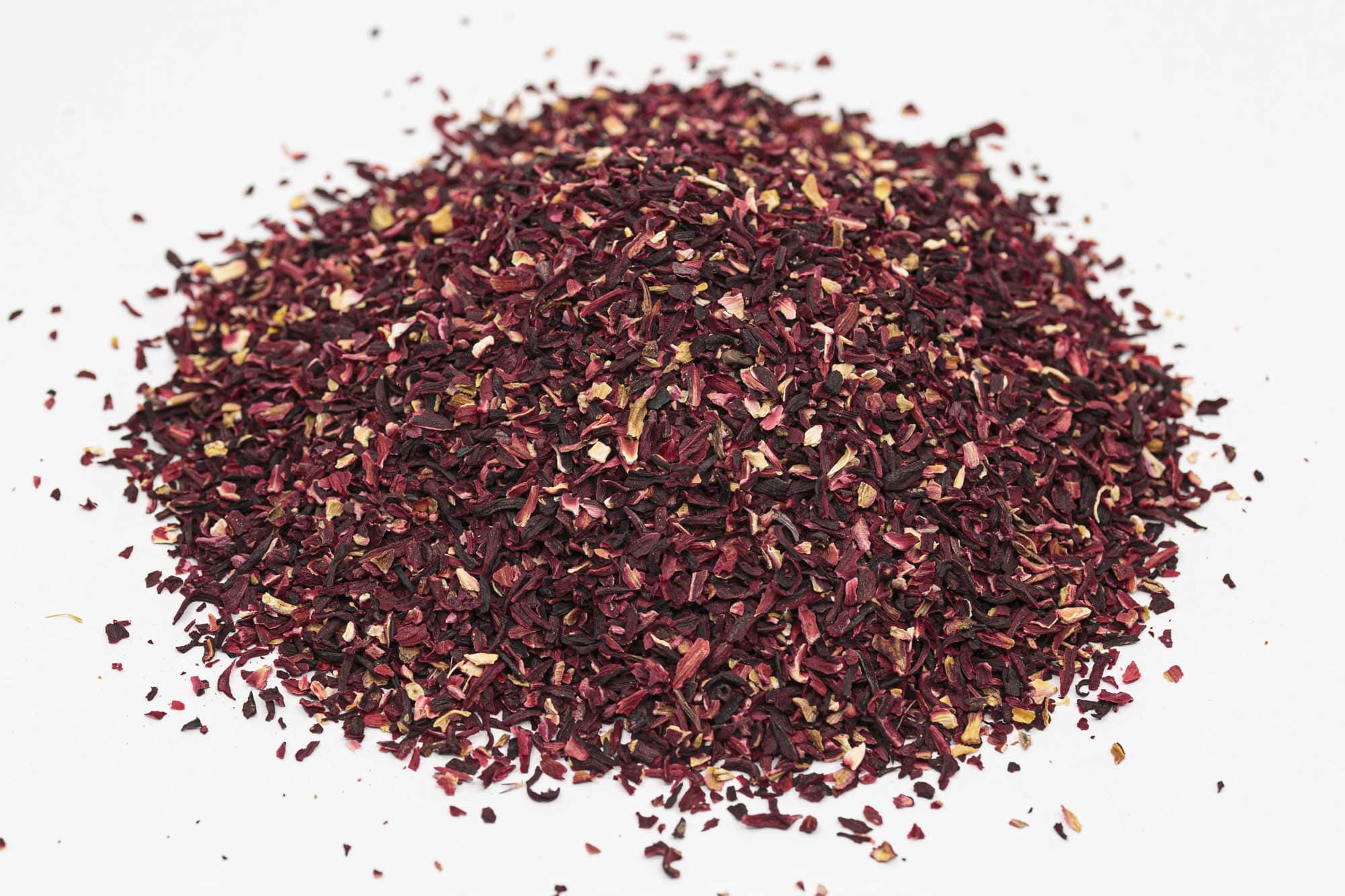Hibiscus – Hybiscus

The dried hibiscus flower (lat. *Hibiscus sabdariffa*), also known as karkade, has characteristic dark red or ruby-red petals that are rich in phytochemicals. After drying, the flower retains its intense color and slightly sour taste. It is used in cooking, medicine, and cosmetics due to its numerous medicinal properties.
Medicinal properties:
- Rich in antioxidants: Hibiscus contains high concentrations of vitamin C, anthocyanins, and other antioxidants that help fight free radicals and reduce oxidative stress.
- Supports heart health: Studies show that hibiscus can lower blood pressure and cholesterol levels, contributing to better heart health.
- Helps regulate blood sugar: It can be beneficial for people with diabetes as it reduces sugar absorption.
- Supports liver health: Hibiscus has a protective effect on the liver, helping with detoxification and cell regeneration.
- Anti-inflammatory effects: It reduces inflammation in the body due to the presence of flavonoids and other bioactive compounds.
- Helps with weight loss: Hibiscus can stimulate metabolism and reduce fat absorption.
Uses in cosmetics:
- For skin care: Hibiscus is rich in alpha-hydroxy acids (AHAs), which help remove dead skin cells, stimulate regeneration, and improve skin elasticity. It is used in serums, creams, and face masks.
- For hair care: Hibiscus extracts are added to hair care products as they promote hair growth, prevent hair loss, and enhance shine.
- Anti-aging: Due to its high antioxidant content, hibiscus is used in products to reduce signs of aging, such as wrinkles and hyperpigmentation.
